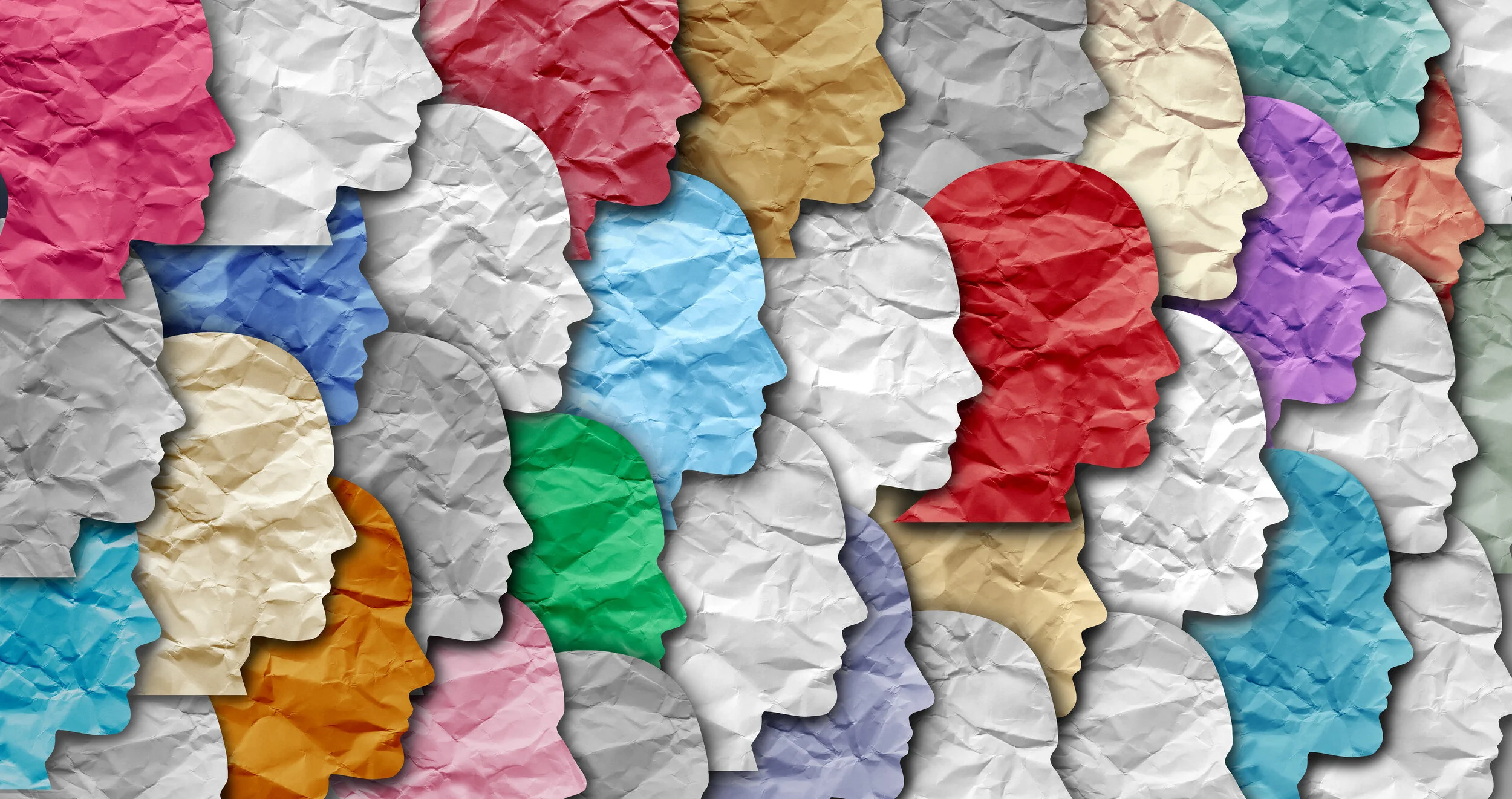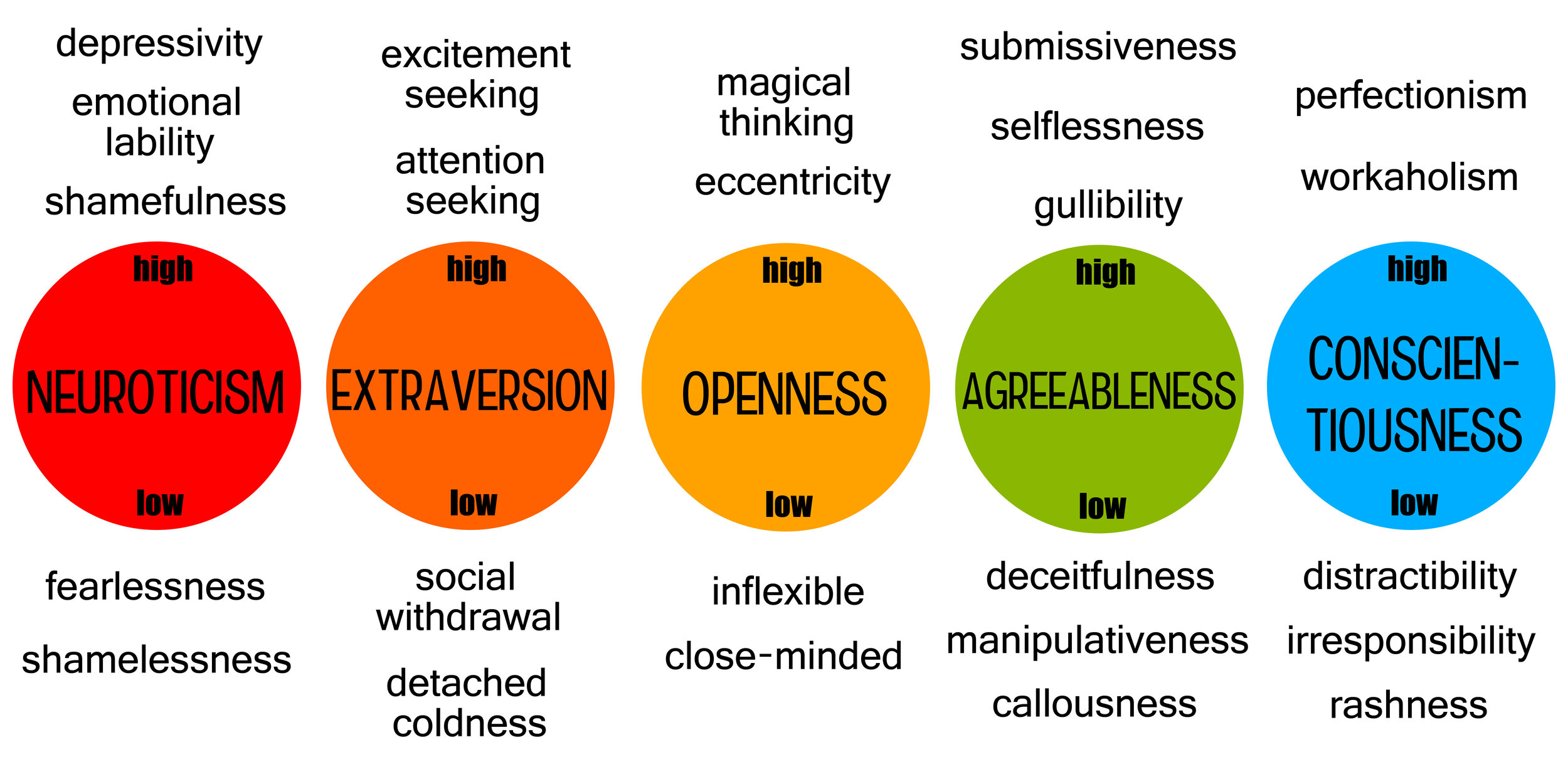The Big 5: Five Variants of Behavior that Shape your personality
Your Personality Is Composed of Five Things.
How does your personality affect your habits?
I recently discussed how we can make small changes and turn them into positive habits. The book Atomic Habits by James Clear also touches on how your specific personality affects your habits. Did you know that there is a strong genetic component to your personality? Personality is the results of several genes working together.
This means that your genes influence nearly every part of your life. The book uses examples such as your genes influencing your likelihood of getting divorced, or becoming an addict. It influences how productive you are, and how you react during a stressful event. It is said that genetics has a bigger influence on your personality than the results of your upbringing, or the influence of your parents.
The word personality is difficult to define. Some would describe it as a complex set of characteristics that distinguishes an individual or group. It’s described as the totality of an individual's behavioral and emotional characteristics, as well as a person's set of distinctive traits and characteristics. What has been proven is that the specific analysis of personality can be broken down to five variants of behavior.
James Clear refers to these as The Big Five:
Openness to experience
Conscientiousness
Extroversion
Agreeableness
Neuroticism
The chart below shows the range in presentation for each behavior at the low and high ends.
Looking at the physiology of our bodies, someone who is highly agreeable and kind may have higher natural oxytocin levels. Oxytocin is a hormone that is linked to empathy and feeling warm and fuzzy. Another example would be someone who is high on the neuroticism scale. This person is likely to be more anxious and worry more than others. Physiologically, this person might have an enlarged or overactive amygdala. Our amygdala houses the “fight or flight”response and is sensitive to threat and different emotional responses.
We need to be aware of our own personality to understand how it affects our processes and decisions. If we can be honest about how we operate as individuals, we can use the information to our benefit. Certain habits are easier for some people than others. When it comes to making new habits, or conquering challenges, we have the ability to create habits that work for our personality. If we can make things easier for ourselves, then we’ll have a greater chance of following through and making changes that last.
For example, let's say you have a goal of losing weight, but you hate the gym environment, you embarrass easily around other people, and you don’t know how to properly lift weights. Going to the gym to exercise will only make you miserable! It’s not impossible, but it would be tough to stick to that habit. If you like being outdoors maybe consider hiking instead.
You can still lose weight by exercising outside. Doing this with a close friend could help keep you accountable. You could take turns picking trails and/or routes to hike or walk. Pick something enjoyable for you!
So how well do you know yourself?
I implore you to click the link and take a test that you're interested in. There are a couple great short ones and one that’s more clinical and in-depth.
Your results might surprise you, or they might be exactly as you thought they would be. You have the ability to set yourself up to succeed and meet your goals. I think it takes a little honesty and understanding of the way you——
How can you use this information to your benefit? How can you enrich your own life?


















Do you struggle with side planks? Try a modified version on your forearm and knee. You can add different exercises in this position to work the side body while working towards a full side plank.